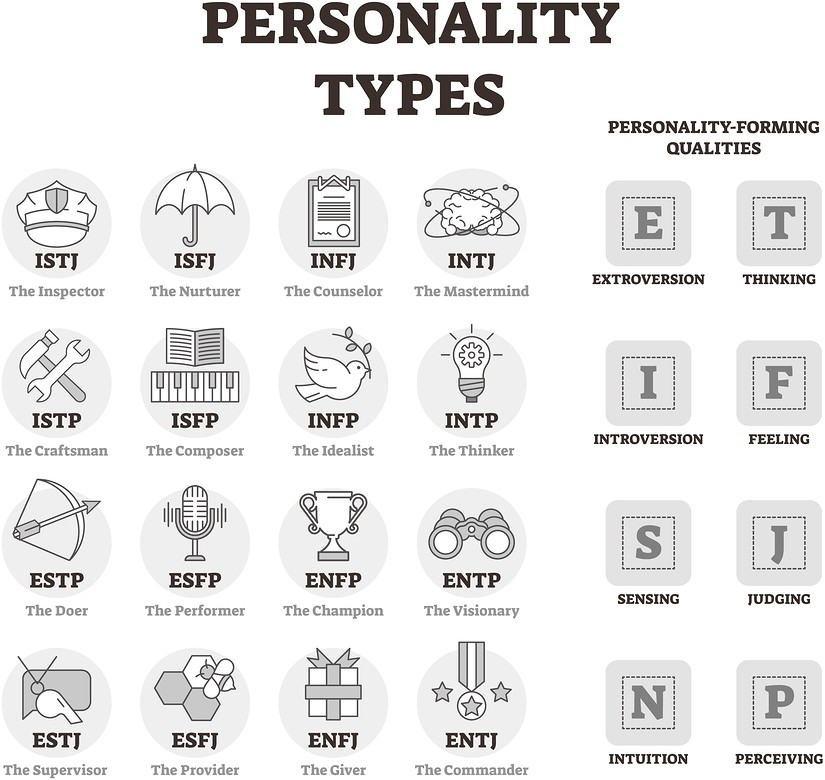Several years into my career in corporate, business-to-business selling, I realized there are a few key things you can find out about someone that will dramatically increase your odds of making a favorable impression and getting them involved with your product or service.
Even before this realization, I was already outselling pretty much all of the other salespeople at the companies I worked for. It was because I was a ruthless qualifier …
I simply refused to spend time trying to persuade unqualified buyers … while the other salespeople often wasted their valuable time and energy trying to sell to people who couldn’t buy … or with companies who shouldn’t buy because one of our competitors was better able to serve them.
This meant I was dumbfounded when my prospects often failed to see why we were the absolute best solution to their company’s problem.
To me, their behavior was like denying two and two make four — until I discovered my failing …
I just wasn’t speaking their language. I was saying the right things, but in the wrong ways. I was trying to impose my worldview on my prospects, and as a result, no matter how many sound reasons I gave them for buying, my communication fell on deaf ears.
And then one day I went to a sales training where the presenter divided his easel sheet into four quadrants and labeled them, Driver, Expressive, Analytic, and Amiable.
He then went on to explain the behavior traits of each one of these personality types.
This was the first of maybe seven or eight times I would see slightly different renditions of this presentation during the years I carried a bag. I took notes …
Driver personalities are extroverted, easily annoyed, bright, self-confident, self-sufficient and very independent in their thinking.
They are decisive and opinionated. Drivers are creative visionaries who never run out of practical ideas, plans and goals. Full of energy and determination, they communicate directly and are not easily swayed by the opinions of others. Empathy is not their strong suit. Driver personalities tend to place results before relationships.
Expressive personalities are extroverted, fun-loving, and continually striving to be the center of attention.
They are easily amused and optimistic, receptive and open to others. They build relationships quickly. Expressive personality types are animated, enthusiastic, accepting and tolerant. They smile, talk, and laugh easily and often. They’re extremely sociable, dislike solitude and are easily bored. Expressive personalities wear their hearts on their sleeves, are often late and disorganized, and are very concerned about what others think. They crave acceptance and fear rejection.
Amiable personalities are introverted, calm, easygoing and accommodating.
They often appear cold, but they are unassertive and therefore easy to get along with. Amiable personalities enjoy solitude and prefer not to get too involved with people outside of their immediate families and a small circle of close friends. They are loyal, steadfast workers, but not particularly ambitious. They resist change, seek to avoid conflict, and find it difficult to make decisions.
Analytic personalities are introverted, careful, rational, reserved, and skeptical of the intent of others.
They are perfectionists who don’t smile very much, and they are very sensitive about what others think of their work. Neat, tidy, and organized to a fault, analytics are obsessed with making right decisions and are therefore slow to decide. They are excellent listeners and perceptive between the lines. They abhor risk, fear ridicule, and almost always reject new ideas initially.
 The instructor at this particular sales training went on to describe that most people display dominant traits from not one, but two of these dominant “humors,” as Hypocrites called them in ancient Greece.
The instructor at this particular sales training went on to describe that most people display dominant traits from not one, but two of these dominant “humors,” as Hypocrites called them in ancient Greece.
Next, he demonstrated a system for plotting an individual’s personality profile on a grid which yielded a total of 16 different common profiles.
I found the concept intriguing, but overly complex …
From that point forward, I did however begin paying much more attention during the fact-finding part of the sales process.
I became much more interested in listening between the lines, to uncover not just objective facts, but also the filter through which those facts were perceived and expressed by my prospects.
I realized that irrespective of what I saw as reality, each one of my prospects had their own personal version of reality … and each person functioned from different levels of awareness and understanding.
In other words, they all had their own view of the world — and their place in it.
So I began working diligently to communicate my sales message in a way that was natural, comfortable and in harmony with the unique viewpoints of each one of my prospects.
At first this seemed like a daunting task, but I soon realized the most important thing about human beings. For all our uniqueness and complexity, for all our seeming differences, we are strikingly similar.
Indeed, if you know a few key things about a person, you can tailor your sales message to be dramatically more persuasive. Here’s my simplified alternative to using the 4 temperaments.
Glass half empty or glass half full?
If you know a person’s outlook on life, you can frame the benefits of your product appropriately.
For the optimist, position your product as a means to obtaining more out of life. Sell new capabilities, new opportunities, and the pleasures that go along with them — things to move toward.
For the pessimist, position your product as a way of avoiding the imminent doom that’s sure to befall him if he fails to solve his problem, and the pain that accompanies it — things to move away from.
Internal or external sense of self-worth?
If you know where a person looks for self-esteem, it has a dramatic impact on how you should communicate with that person.
If strongly internally directed, you can sell effectively with reasoned logic. Such a person wants to feel they are making a sound decision, based on facts. They are less concerned with gaining external praise and recognition and enjoy accomplishment for accomplishment’s sake.
The externally directed person is more interested in what other people think. They are influenced greatly by testimonials and success stories and are strongly motivated by the prospect of gaining positive recognition from others, as a result of their decisions.
Captain of their own destiny, or hapless victim?
You sell to a person who feels personally empowered very differently than you do to a person who sees themselves at the mercy of their environment.
For someone who confidently believes they are the captain of their own destiny, you place the responsibility for success squarely on their shoulders. If they’ll just hold up their end of the bargain, if they just do what’s necessary, success is assured.
For the person who tends to embrace victimhood, you position your product as a magic pill. All that is required is a signature on the dotted line and everything is taken care of. Your solution is all powerful, like a giant wave crashing toward the shore and all your prospect need do is come along for the ride.
Mind open or mind closed?
Is your prospect inclined toward possibility thinking? Or quick to come up with reasons why innovative new ideas can’t possibly work?
With an open-minded individual, you must give them plenty of room for divergent thinking. Play the role of brainstorming facilitator, while gradually narrowing down the options to your solution, if it’s the right one.
For the closed-minded individual, you play on fear to jolt them out of their complacency. Back up the proverbial hearse and paint a picture of the horrifying alternative that awaits them if they fail to take action … or if they repeat the same kinds of comfortable, yet ineffective, actions they’ve taken in the past.
All well and good, Daniel… but is there a way to attract the right worldview and mindset to my enrollment calls in the first place?
How far can we go to harmonize our communication with any one personality type? Do we dare tailor our marketing message as narrowly as we would our sales message when ear-to-mouth with a prospect?
It depends …
In some cases, an activity that unites and defines a market demands certain personality orientations.

If you’re selling to motocross enthusiasts (just the first thing that popped into my head) let’s say — or any other person involved in some dangerous activity that involves a great deal of personal skill to perform — it’s probable these individuals tend to see the glass half full rather than half empty.
They probably also believe they have a great deal of personal autonomy over their own success or failure.
The high stakes of the game literally force them to gravitate toward one end of the spectrum in these two areas. The lure of the game may also make these qualities seductive to the wannabe faction of the market.
On the other hand, such an activity really doesn’t tell you much about whether the ideal prospect looks internally or externally for their sense of self-worth. They may be equally motivate by recognition or a sense of accomplishment.
In this case, it may make sense to appeal to both extremes.
External orientation: Rocket from raw rookie to respected, mega-skilled winner almost immediately.
Internal orientation: Don’t you owe it to yourself to be the best you can be?
Constituents within this market could just as easily be eager to learn about and try new things as they may be locked in rigid patterns of thinking.
Once again you can use language that appeals to both personality extremes.
Sometimes a product will be uniquely appealing to those who share the same worldview.
Carmakers deliberately design cars and the marketing that sells them to appeal to particular personality types. Volvo cars for example, with their boxy, safety inspired design have a natural appeal for people who move away from things … and who look inside of themselves for their sense of self-worth.
With some markets, products, and selling situations, there may not be much personality trait correlation at all. The market is simply representative of the general public.
And how do you appeal to John Q. Public? Lean heavily on the glass half empty … external sense of self-worth … hapless victim … and mind closed. That’s how the majority of people think. Sad but true.
A wise man once said: “We all have three selves. The person we see. The person others see. The person we really are.”
Until next time, Good Selling!
Daniel,
Very thought provoking article. I have used Myers-Briggs in the past, but to relate to the sales environment is new to me. This may take a bit to get used to, but I am willing to give it a go. I will put it close by as a constant reminder while I determine my ideal client.
Thanks Daniel,
Dave
I’ve been using vin68bet for a while now, and I’ve gotta say, I’m pretty happy with it. Good odds and a decent selection of bets. Just my two cents. vin68bet